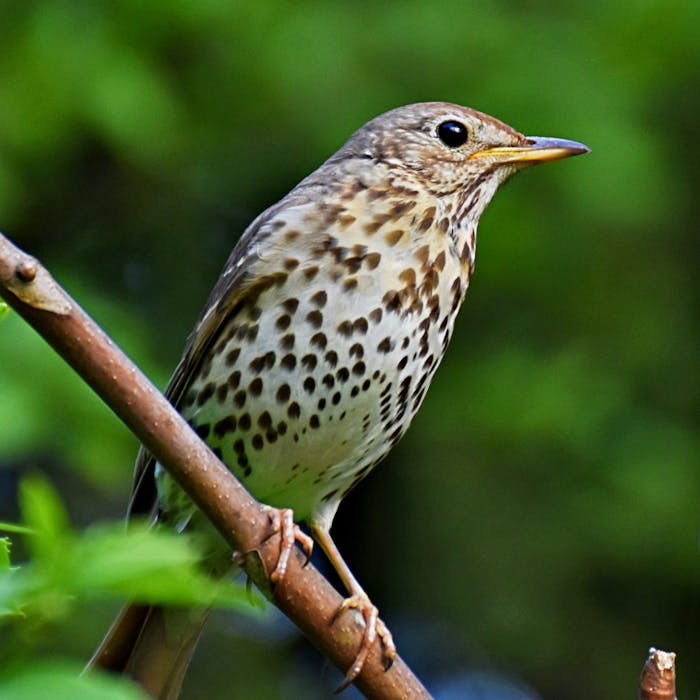
Song Thrush
The song thrush is a familiar garden visitor that has a beautiful and loud song. The broken shells of their blue, spotty eggs can often be found under a hedge in spring. Sadly, this tuneful bird is less common than it used to be in Britain.
The song thrush is brown above, with a white belly covered in black, drop-shaped spots. It is smaller and a warmer brown than the similar Mistle Thrush.
It is found in parks and gardens, woodland and scrub. Living up to its name, it has a beautiful, loud song with repeating phrases. Widespread throughout Europe, and as far east as Siberia, northern populations are migratory, heading to Africa. However, British song thrushes tend to be residents. From March until April, song thrushes breed, often producing three broods of up to five blue, spotty eggs.
In the spring and summer, song thrushes can often be seen on the ground looking for worms and beetles. They are famous for their habit of bashing snails on an ‘anvil’ to crack the shells, so if you find fragments of snail shells gathered near a large stone in your garden, it probably means there’s a song thrush around. Their movements are quite blackbird-like, and they have a habit of standing quite upright and cocking their heads. They are strong fliers and like to sing high up on prominent branches.
Song thrushes are one of the earliest birds to start singing in the morning, and also sing again at dusk.
In Britain, there has been a more than 50% decline in population. The decreases are greatest in farmlands (73% since the mid-1970s) and believed to be due to changes in agricultural practices in recent decades. In gardens, the use of poison bait to control slugs and snails may pose a threat. In urban areas, some thrushes are killed while using the hard surface of roads to smash snails.
Further reading
Links to external websites are not maintained by Bite Sized Britain. They are provided to give users access to additional information. Bite Sized Britain is not responsible for the content of these external websites.
